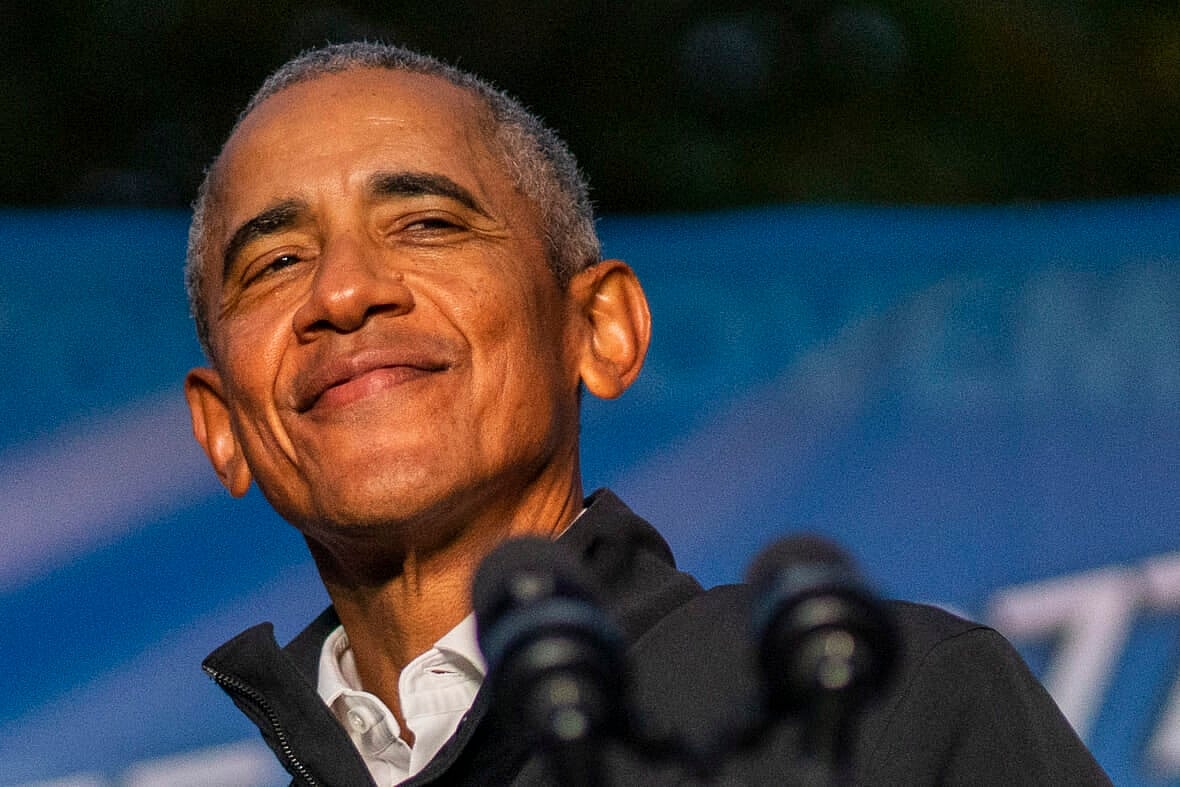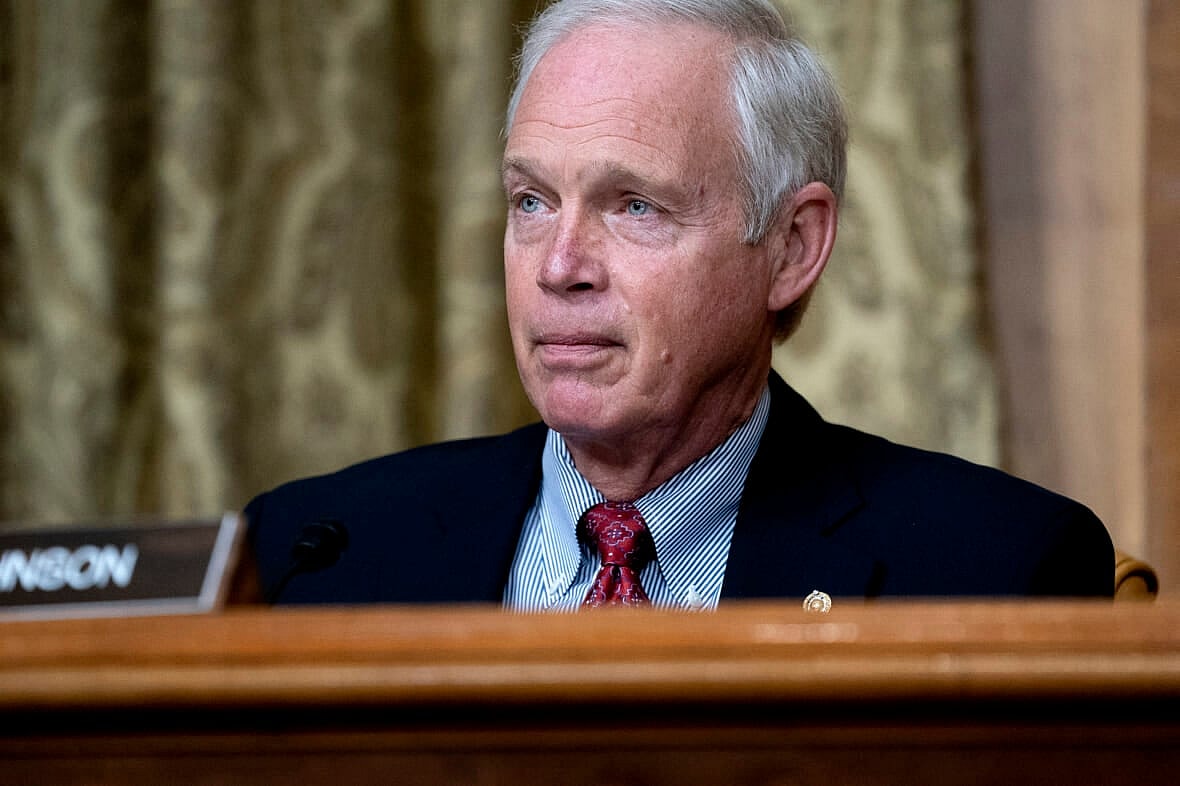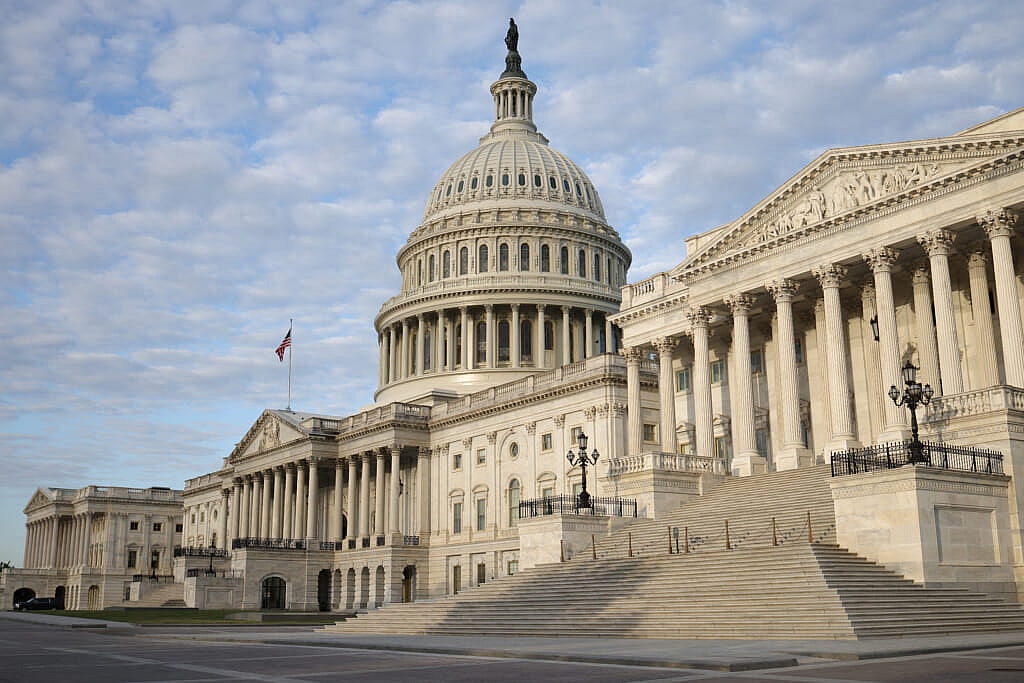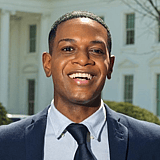Mandela Barnes likely owes his political career to former President Barack Obama. The Democratic nominee for U.S. Senate in Wisconsin — and the state’s current lieutenant governor — was inspired in 2004 by then-Senator Obama’s speech at the Democratic National Convention.

“That’s what prompted me to get engaged. I felt encouraged when I heard his words because they were words that I hadn’t necessarily heard before,” Barnes told theGrio during a recent sit-down interview. “The way that he made his story so relatable to people all across the country and how, you know, he led with his story being a uniquely American story. It was inspiring.”
Barnes, 35, said Obama’s speech about the American dream and his hope for a “brighter day” led him to become an organizer and, eventually, embark on a career in public service. “I wouldn’t be on this path if I didn’t hear that speech in 2004,” he said.
Now, Obama, America’s first Black president, is coming to Barnes’ hometown of Milwaukee on Saturday to campaign for the young politician he inspired nearly two decades ago.
“To have him in my hometown at a moment like this means the world,” Barnes told theGrio. “I’m really excited to be a part of this visit with him.”

If successful in his bid for Senate on Nov. 8, Barnes could, like Obama, make Black American history. Barnes, who is seeking to unseat incumbent Republican Sen. Ron Johnson, would become Wisconsin’s first Black U.S. senator. However, it wouldn’t be the first time Barnes made history in the Badger State. In 2019, when he was elected as lieutenant governor, Barnes became only the second Black person elected to statewide office in Wisconsin’s history.
“Making history is fine, but making a difference is the most important thing,” he declared. “And personally, it’s less about what it means to me and [more about] what it means for the next generation of people.”
Barnes has shaped his Senate campaign around his personal story as a son of Wisconsin educated in public schools and raised by working-class, union-member parents — his mom, a Milwaukee school teacher, and his dad, a factory worker. Barnes’ grandfather moved to Milwaukee after World War II, then worked as a union steelworker.
“He had a good job in a safe city, but when those factories closed their doors and moved their operations out of state or overseas is when we saw a rise in crime and violence and further deterioration,” Barnes explained. “And it feels like nobody’s been there to truly pick up the pieces since that’s happened.”
It’s his lived experience, he says, that gives him an understanding of what Wisconsinites need most: “We need people who understand the struggles and challenges … but also the hopes and dreams.”
During the hotly contested race for Senate, the Democratic nominee has slammed his opponent, calling Johnson “out-of-touch, ultra-wealthy, pro-outsourcing [and] anti-union.” Barnes contends the two-term senator and other Republicans on Capitol Hill have “only served the wealthy [and] the special interests,” including “oil and gas industries, pharmaceutical industries [and] insurance industries.”
Johnson has accused Barnes of being soft on crime and supporting “massive spending” by Democrats that he says has caused inflation. While Republicans have hammered the Biden White House and Democrats over the economy this election cycle, Barnes countered that Johnson and his GOP colleagues in Congress have been “gaslighting working people.”
“His biggest achievement was the 2017 tax plan that he was initially a no-vote on until he orchestrated $215 million in tax deductions for two of his biggest donors in one year,” said Barnes, who also hit Johnson for saying Wisconsin had “enough jobs” when asked to persuade a manufacturing company to not move more than 1,000 new jobs out of the state.
“Ron Johnson said he’s against raising the minimum wage. He’s against expansion of health care. He’s against family leave,” said the lieutenant governor. “He’s against everything that will help make quality of life for working people better.”
Barnes and Johnson clashed in their second Senate debate earlier this month over national issues like the economy, crime, abortion and immigration.
At one point, in an attempt to inject some civility into an otherwise divisive political showdown, both Senate candidates were asked to say something admirable about the other. Barnes commended Johnson’s role as a “family man.” Johnson returned the compliment, praising Barnes as having “very loving parents” and a “good upbringing.”

Within seconds, however, Johnson followed up with a dig at Barnes, saying, “I guess what puzzles me about that is that with that upbringing, why has he turned against America?” He continued, “Why does he find America to be awful?” The audience quickly booed Johnson before he was cut off by the debate moderators.
Reflecting on that moment, Barnes told theGrio, “He can insult me, but the biggest insult is him turning his back on the people of Wisconsin … turning his back on our small family farmers, our small business owners and working families.
“[Johnson] had a rough night in that debate,” he noted. “But people in Wisconsin are having a rough time because of his lack of leadership or representation.”
Barnes’ run for Johnson’s Senate seat is a closely watched race, as its outcome — in less than two weeks — could determine the balance of power in the upper chamber, where Democratic voters have grown frustrated by the party’s inability to accomplish some of its policy agendas due to the Senate having 50 Republicans, 48 Democrats and two Independents who caucus with the Dems. Moreover, two moderate Democrats, Sens. Joe Manchin and Kyrsten Sinema, have notably impeded some of those efforts.

“The Senate is broken,” said Barnes, calling it “a place that doesn’t share the experience that a majority of people in this country experience.”
“It’s the reason why we see legislation get stalled as soon as it hits the U.S. Senate — because most of our U.S. senators aren’t impacted by these issues,” he maintained. “Most of the senators are so detached from the real world as a majority of people live it.”
Barnes believes more “working-class voices” are needed in the Senate, which he called “a club for the elite” and a “multi-millionaires club.”
“If we don’t have the voices of the people sitting at the table where these decisions are being made, where the quote-unquote, most deliberative body in the world is doing their work, they will never meet the needs of people who continue to be left behind in our society,” he argued.
Though Barnes currently trails Johnson 46% to 52% in a recent poll of Wisconsin voters, he remains optimistic that he can make history and bring change to Washington.
“I’m running because better is possible, and I believe we can give everybody in this state, in this country, a fair shot at the American dream,” he said. “But it takes people who actually share our experiences and people who share our values … people who want better for somebody other than themselves.”

Gerren Keith Gaynor is the Managing Editor of Politics and Washington Correspondent at theGrio. He is based in Washington, D.C.
TheGrio is FREE on your TV via Apple TV, Amazon Fire, Roku and Android TV. Also, please download theGrio mobile apps today!

